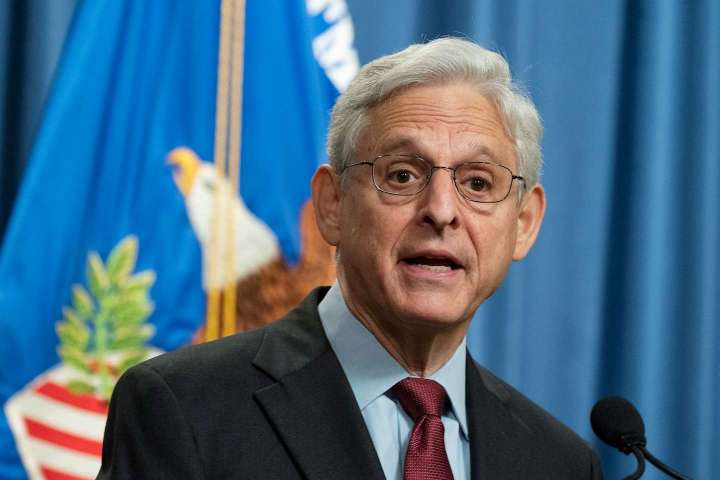Does Merrick Garland want to wind up like Robert S. Mueller III?
Garland should think twice before stepping into Mueller’s shoes

In a Post column poignantly headlined “Robert Mueller failed to do his duty,” Ron Klain, now President Biden’s chief of staff, summed up the disappointment of many on the left. “The oft-repeated wisdom that Mueller ‘knew things we did not know’ turned out to be vastly overestimated,” Klain wrote, adding that “if expectations were too high for Mueller’s report, the inevitable disappointment was exacerbated by how Mueller fell short in what he delivered.”
Attorney General Garland should imagine Klain’s words above with his own name swapped for Mueller’s. Before completely succumbing to calls to put Trump in the crosshairs of a Justice Department probe for his role in the Jan. 6, 2021, riot at the U.S. Capitol, Garland might remind himself of the enmity aimed at Mueller when the lack of substantive evidence poured cold water on two years of speculation and media hype.
After the televised select committee hearings, numerous prosecutions of individual rioters and 1½ years of exhaustive media reporting on the Jan. 6 breach of the Capitol, it should be clear to all that such a probe would be nothing but a political exercise designed to assuage Trump’s haters. What was apparent on Jan. 6, 2021, remains apparent today: Trump’s behavior after his defeat was often reprehensible. But the argument that it was criminal remains weak.
If the Jan. 6 committee had anything close to the slam-dunk criminal evidence that would, and should, be necessary to convict a former president, it would have built one of its highly scripted prime-time presentations around it. Instead, it presented hearing after hearing of innuendo and conjecture, asking Americans to connect the dots to reveal a conspiracy that just hasn’t been shown to be there. The better course for everyone — including Democrats — would be to lower expectations rather than subject the nation to a months-long overdose of media conjecture based on a murky brew of leaks and background reporting, as happened during the Mueller investigation.
But Garland is only human, and he might well succumb to pressure to investigate and ultimately prosecute Trump, using the committee’s slick repackaging of events as his road map. It’s a fool’s errand. The committee’s fatal flaw was in not presenting an alternative view of events to counterbalance its one-sided narrative. As a result, Americans who followed the hearings and perhaps focused for the first time on the details of the riot were led to believe the case against Trump is ironclad. By contrast, a judge or jury presented with Trump’s defense would be considering mounds of additional evidence glossed over by the committee.
Chief among that evidence is one word — “peacefully” — that the committee would have been wise to acknowledge. Instead, despite playing multiple clips from Trump’s Jan. 6 address on the Ellipse, it repeatedly omitted Trump saying the following: “I know that everyone here will soon be marching over to the Capitol building to peacefully and patriotically make your voices heard.” Presented at a trial, that sentence alone probably acquits Trump.
Trump’s other admonitions that critics say invoked violence — most notably, “We fight like hell, and if you don’t fight like hell you’re not going to have a country anymore” — were irresponsible in the moment. But the full transcript makes clear that those remarks represented typical rhetoric made in the context of fighting for ideals in the political sphere. And if his tweet urging supporters to attend the Jan. 6 rally and predicting it “will be wild” is deemed criminal, anyone using social media to predict something will be exciting or crazy had better lawyer up.
Many of the other accusations against Trump hinge on whether he sincerely believed the election was fraudulent. While the Jan. 6 committee demonstrated that plenty of those within Trump’s circle tried to convince him it wasn’t, others argued otherwise. It’s one thing to make a convincing case proving what Trump should have believed, but quite another to prove what he did believe.
By refusing to accept defeat in the 2020 election, Trump is morally responsible for two particularly disgraceful moments in American history — the Jan. 6 riot and the image of a new president taking the oath of office while his predecessor boycotts the ceremony. But after state and federal investigations run their course, the inescapable conclusion may well be that while Trump might be morally reprehensible and even shamefully unpatriotic, he is not, in fact, a criminal.






